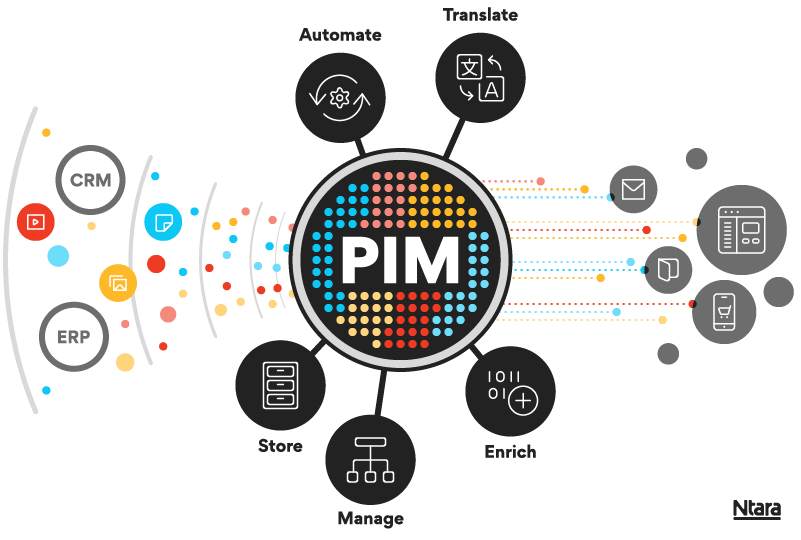- Introduction
- What Makes an Enterprise eCommerce Platform Different?
- 7 Steps to Choosing the Right Enterprise eCommerce Platform
- Conclusion
- Frequently Asked Questions (FAQs)
Table of Contents
How to Choose Right Enterprise ecommerce Platform in 7 Steps

Introduction
Like any cheap vendor selling multiple articles at a dollar price, nowadays, you will find various new service providers claiming to be the best in the market with their enterprise eCommerce solutions.
Most novice business owners and individuals get drawn towards those false claims due to their attractive, cheap prices and over-the-top promises.
But would you consider investing in some cheap enterprise eCommerce development with no scalability and security, which might require more major investment in the future, or a full-fledged expert and professional-level enterprise eCommerce platform that would be designed by experts with years of experience?
The eCommerce sector is changing rapidly, and to keep up with that speed, you need to hire a team of experts who will understand your requirements from the inside out and provide you with a solution that will fit you like a glove.
But how will you decide which enterprise eCommerce development will best suit you? Well, that's where our comprehensive 7-step guide comes in.
This guide will walk you through a structured process for evaluating and choosing the most suitable enterprise eCommerce platform.
Help yourself out!
What Makes an Enterprise eCommerce Platform Different?
When it comes to enterprise eCommerce platforms, there are distinct characteristics that set them apart from standard eCommerce solutions.
These platforms are specifically tailored to meet the complex demands of large businesses operating in competitive markets.
Let's delve deeper into the core features that differentiate enterprise eCommerce platforms from their regular counterparts.
Scalability to Handle High Traffic Volumes

Scalability is not just about handling current traffic requirements; it's also about accommodating future growth without compromising performance or uptime.
Keeping scalability in mind, These enterprise e-commerce platforms are designed to effectively manage sudden spikes in website traffic, especially during peak seasons or promotional events.
The ability to scale up ensures the enterprise eCommerce site remains responsive and reliable, preserving the user experience even under heavy load conditions.
Advanced Features for Complex Business Needs
Enterprise eCommerce platforms come equipped with advanced features that cater to the intricate needs of large businesses.
These features go beyond basic online selling functionalities and include sophisticated tools for customer segmentation, personalized marketing campaigns, and omnichannel interactions.
Not only that, but the eCommerce development capabilities may extend to inventory management, order fulfillment, and customer service automation, providing a comprehensive solution for diverse business operations.
Seamless Integration with Existing Enterprise Systems
Integration is a key consideration when choosing an enterprise eCommerce platform. Seamless connectivity with existing enterprise systems, such as CRM, ERP, and analytics tools, is essential for maintaining operational efficiency and data consistency across the organization.
By integrating the eCommerce site with other existing systems, companies can streamline processes, improve data visibility, and facilitate informed decision-making.
The seamless flow of information between different systems maximizes productivity, reduces manual workarounds, and ensures a cohesive digital ecosystem that supports the company's overarching objectives.
7 Steps to Choosing the Right Enterprise eCommerce Platform
When selecting the most suitable and best enterprise eCommerce platform for your business needs, there are several crucial steps to consider.
Each step plays a vital role in choosing a platform that aligns with your business requirements, budget constraints, and desired features. Let's walk through the seven steps that will guide you toward making an informed decision in selecting the perfect enterprise eCommerce platform.
Step 1: Define Your Business Requirements

Before selecting an enterprise eCommerce development platform, it is essential to define your business requirements.
This includes considering factors such as the size and complexity of your product catalog, your anticipated order volume and growth projections, and whether you operate on a B2B, B2C, or hybrid model.
Product Catalog Size and Complexity
Understanding the scale and complexity of your product catalog is paramount when selecting an enterprise eCommerce development.
Ensure the platform can efficiently handle your current product offerings while accommodating future expansion without compromising performance.
Order Volume and Anticipated Growth
Consider your current order volume and anticipate future growth patterns in the enterprise eCommerce platform. Choose a platform that can scale seamlessly to manage high volumes of orders during peak periods without any downtime.
B2B or B2C Sales Model (or Both)
If your business operates in both B2B and B2C sectors, opt for a platform that supports the functionality required for both models. Ensure the enterprise eCommerce platform's capabilities align with your business needs across all sales channels.
Step 2: Consider Your Budget

Budgetary constraints play a significant role in choosing an enterprise eCommerce platform. Evaluate the costs associated with the enterprise eCommerce development platform licensing, implementation, development, and ongoing maintenance and support to ensure the platform is financially viable for your business.
Platform Licensing Costs
Factor in the licensing costs associated with the enterprise eCommerce platform and ensure they fit your budget restrictions. Compare pricing plans and features different platforms offer to make an informed decision.
Implementation and Development Fees
Consider the implementation and enterprise eCommerce development fees involved in setting up the platform. Evaluate whether the costs align with the platform's value proposition and features.
Ongoing Maintenance and Support Costs
Estimate the ongoing maintenance and support costs associated with the enterprise eCommerce platform. Ensure the platform provider offers adequate support and maintenance services that meet your business requirements.
Suggested Reading:
Alcohol Delivery NYC: Comparison of Top eCommerce Platforms
Step 3: Evaluate Platform Features and Functionality
Evaluate the features and functionality offered by different enterprise eCommerce platforms to ensure they align with your business requirements. Consider the following key aspects when assessing platform capabilities.
Product Information Management (PIM) Capabilities

Look for the best enterprise eCommerce platform with robust PIM capabilities that enable you to manage product information, attributes, and variants across your catalog effectively.
Marketing and Promotions Tools
Choose an enterprise eCommerce development that comes with comprehensive marketing and promotional tools to drive customer engagement and boost sales.
Features such as built-in marketing automation and personalized promotions can significantly enhance your marketing efforts.
Customer Relationship Management (CRM) Integration
Ensure the enterprise eCommerce platform allows seamless integration with your CRM system to synchronize customer data and provide a unified view of customer interactions across all touchpoints.
Robust Security Features and Payment Processing
To protect sensitive customer data and transactions, prioritize enterprise eCommerce platforms that offer robust security features and secure payment processing options.
Step 4: Prioritize Scalability and Integration Needs
 Scalability and seamless integration are crucial factors when selecting an enterprise eCommerce platform to support your business growth. Here’s how you can do it
Scalability and seamless integration are crucial factors when selecting an enterprise eCommerce platform to support your business growth. Here’s how you can do it
Integration with Existing Enterprise Resource Planning (ERP) Systems
Ensure that the enterprise eCommerce site integrates smoothly with your existing ERP systems to facilitate the seamless data flow and streamline your operations.
Ability to Handle Future Growth in Traffic and Sales
Select an enterprise eCommerce platform that can handle the anticipated increase in website traffic and sales volume as your business expands.
Scalability is essential to ensure the platform can grow with your business without compromising performance.
Suggested Reading:
How to Implement Enterprise E-Commerce Solutions Successfully
Step 5: Assess Platform Security and Reliability

The security and reliability of the enterprise eCommerce platform are paramount to safeguarding your business and customer data.
Data Security Measures and Compliance Standards
Prioritize enterprise eCommerce development platforms that adhere to industry-specific security standards and provide robust data security measures to protect sensitive information from potential cyber threats.
Platform Uptime and Performance Guarantees
Research the enterprise eCommerce platform's uptime and performance guarantees to ensure your operations run smoothly without significant downtime or performance issues that may impact customer experience.
Step 6: Research Platform User Experience (UX) and Vendor Support
The user experience and the quality of vendor support services are instrumental in ensuring the smooth operation of your online enterprise eCommerce platform.
Ease of Use for Administrators and Customers
Choose the best enterprise eCommerce platform with an intuitive user interface that caters to the needs of both administrators and customers, providing a seamless and engaging experience throughout the entire purchasing journey.
Quality of Vendor Support Services (Training, Implementation)
Evaluate the vendor's support services, including the quality of training and implementation assistance in the enterprise eCommerce development. Quality vendor support can significantly impact the successful deployment and operation of the platform.
Step 7: Free Trials and Platform Demos
Utilize free trials and platform demos to gain firsthand experience and insights into the functionalities and usability of the enterprise eCommerce platform.
Importance of Testing Platform Functionality
Use free trials to thoroughly test the platform's functionality, ensuring it meets your business requirements and aligns with your long-term objectives.
Evaluating Platform Usability for Your Specific Needs
Assess the enterprise eCommerce platform's usability in light of your business needs, such as product catalog management, customer engagement features, and administrative capabilities.
Conclusion
The right enterprise eCommerce platform can make or break your business in the eCommerce domain. So, your business must choose the appropriate and best enterprise eCommerce platform for a successful future.
By following the seven steps outlined in thr above guide, you can confidently navigate the selection process and ensure that the enterprise eCommerce site aligns with your specific needs and objectives.
In short, define the exact requirements based on your budget and evaluate the intended platform’s features and functionalities to smooth out the selection process.
After that, you should focus on the scalability essential in enterprise eCommerce, existing system integration needs, and the security of the enterprise eCommerce platform. These will help you set the base for your future eCommerce growth.
It's also essential to research the platform's user experience and vendor support services, as these factors directly impact the operation of your online store.
Lastly, take advantage of free trials and platform demos to gain firsthand experience and ensure the platform meets your needs.
Following these steps, you can choose an enterprise eCommerce platform that enables your business to thrive in the competitive online marketplace.
Suggested Reading :
ERP Integration: Streamlining Operations for Enterprise eCommerce
Frequently Asked Questions (FAQs)
What are the key characteristics of an enterprise eCommerce platform?
Enterprise eCommerce platforms offer scalability to handle high traffic volumes, advanced features for complex business needs, and seamless integration with existing enterprise systems.
These platforms are specifically designed to meet the demands of large businesses.
How do I define my business requirements when choosing an enterprise eCommerce platform?
Consider factors such as the size and complexity of your product catalog, anticipated order volume and growth, and whether you operate on a B2B, B2C, or hybrid model. These factors will help determine your specific platform requirements.
What should I consider when evaluating the budget for an enterprise eCommerce platform?
Evaluate platform licensing costs, implementation and development fees, and ongoing maintenance and support costs. It's important to ensure that the platform is financially viable for your business.
What features and functionality should I look for when evaluating enterprise eCommerce platforms?
Look for robust product information management capabilities, comprehensive marketing and promotions tools, seamless CRM integration, and robust security features and payment processing options.
Why is scalability and integration important when selecting an enterprise eCommerce platform?
Scalability ensures that the platform can handle future growth in traffic and sales, while seamless integration with existing enterprise systems streamlines operations and maintains data consistency across the organization.
How can I test the usability of an enterprise eCommerce platform before making a decision?
Take advantage of free trials and platform demos to test the functionality and usability of the platform. This allows you to assess if it meets your specific business needs and aligns with your objectives.
Table of Contents
- Introduction
- What Makes an Enterprise eCommerce Platform Different?
- 7 Steps to Choosing the Right Enterprise eCommerce Platform
- Conclusion
- Frequently Asked Questions (FAQs)





